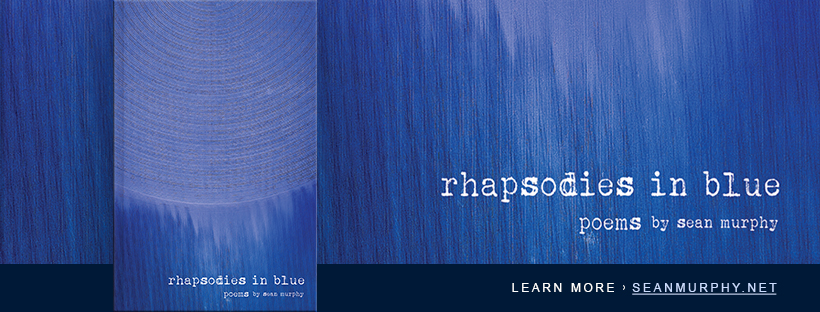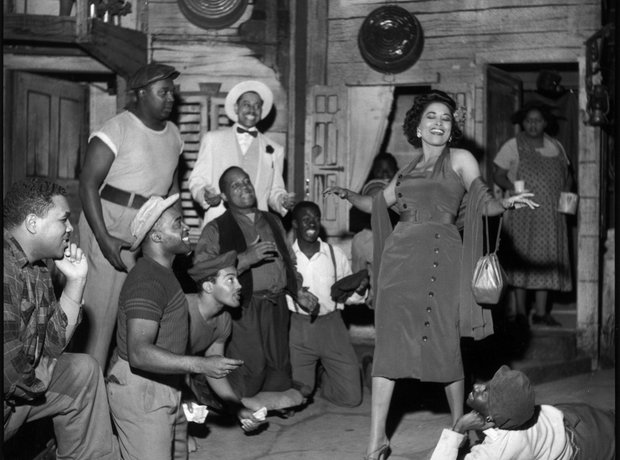
Huge love & thanks to the awesome team at Washington Writers’ Publishing House for featuring my poem “DuBose Heyward’s Blues,” which was drafted with the working title “Rhapsodies in Blue” which is the name of my new collection.
This one is meant to simultaneously trace the way jazz musicians utilized pop standards, reimagining them completely or, often, taking them to whole other places (think Miles with “Summertime” or Nina Simone with “I Loves You Porgy” — or Coltrane with “My Favorite Things,” for that matter…), and also recall how I slowly fell under the spell of jazz music, first by loving it, then understanding it, then understanding the sociocultural circumstances it’s often created in, and then contemplating how poets are, as Shelley insisted, the unacknowledged legislators of the world.
Rhapsodies in Blue is the second installment of a large and ongoing project that explores America (its mythology, its possibility) through a series of poems that function as biography, history, and cultural commentary. Continuing where THE BLACKENED BLUES left off, this collection honors a variety of artistic icons, some well-known, others unjustly obscure, and seeks to capture something essential about their lives, bearing witness while paying homage.
America has always been a cauldron of inconsistencies; so often in our history we’ve ended up with brilliance, tolerance, and progress only after every other option has been exhausted. It seems instructive—and inspiring—to consider that, to take only one from many other examples, this country, which beats and stymies its best citizens, is capable of producing the geniuses who invented and perfected jazz and blues music. Despite every systemic disadvantage and all the obstacles placed in their paths, these musicians lived, played, persevered, and became immortal. Any country that can claim Miles Davis, Thelonious Monk, Duke Ellington, and Howlin’ Wolf is worth preserving, and celebrating.
DuBose Heyward’s Blues*
Even in the 1980’s it wasn’t all bad
because in English 101 I first read
Porgy and Bess and it prepared me
for some things, especially when—
a few years later—Miles smiled
and I finally began to comprehend
a truth or two that anthologies
and college professors can never
articulate, words failing to explain shit
like context and cause and effect, and how
could “Summertime” break my brain
then build it back up each time, reaching me
in its wordless way? Then in walked Bud,
& Ella & Billie & Nina, so by the time I got to
post-grad I knew more about Gershwin—
(& appropriation) and how once again black artists
were obliged to reclaim their culture, elevating us
to places we wouldn’t need to go if the American Dream
offered what was advertised (words, again, talking
a big game but coming up empty in extra innings) and
why I see Emmet Till when Sun Ra takes his solo
on “I Loves You, Porgy,” proving truth’s more painful
than fiction b/c it feels real, even to not-so-innocent
bystanders, and maybe that’s why a recording from 1960
can kill me in all the right ways—suggesting something
about humankind’s deficiencies or redemption—and how
wood, brass, and wind express what words never could.
So, you see, this is what it means when I admit I don’t know
the blues but I understand them, or possibly I’ve got that
backwards, b/c my ears discern what my mind can’t define.
(*American writer Edwin DuBose Heyward’s most famous novel, Porgy (1925), was the basis of George Gershwin’s controversial opera Porgy and Bess (1935), featuring the compositions “Summertime,” and “I Loves You, Porgy,” both of which became jazz standards in subsequent decades, indelibly covered by icons like Miles Davis, Nina Simone, and Billie Holiday.)
A sampler of artists and songs referenced in the poem, below.

